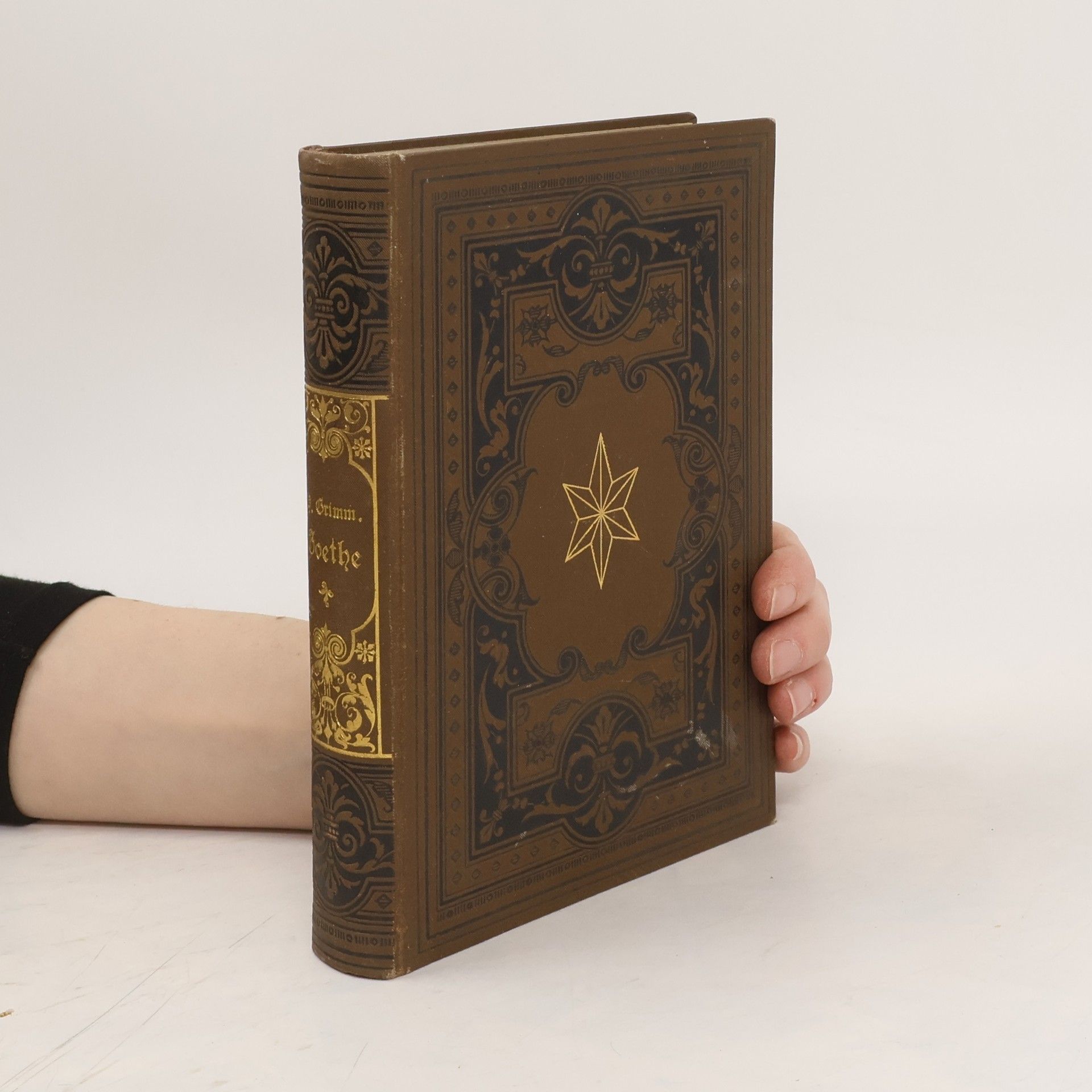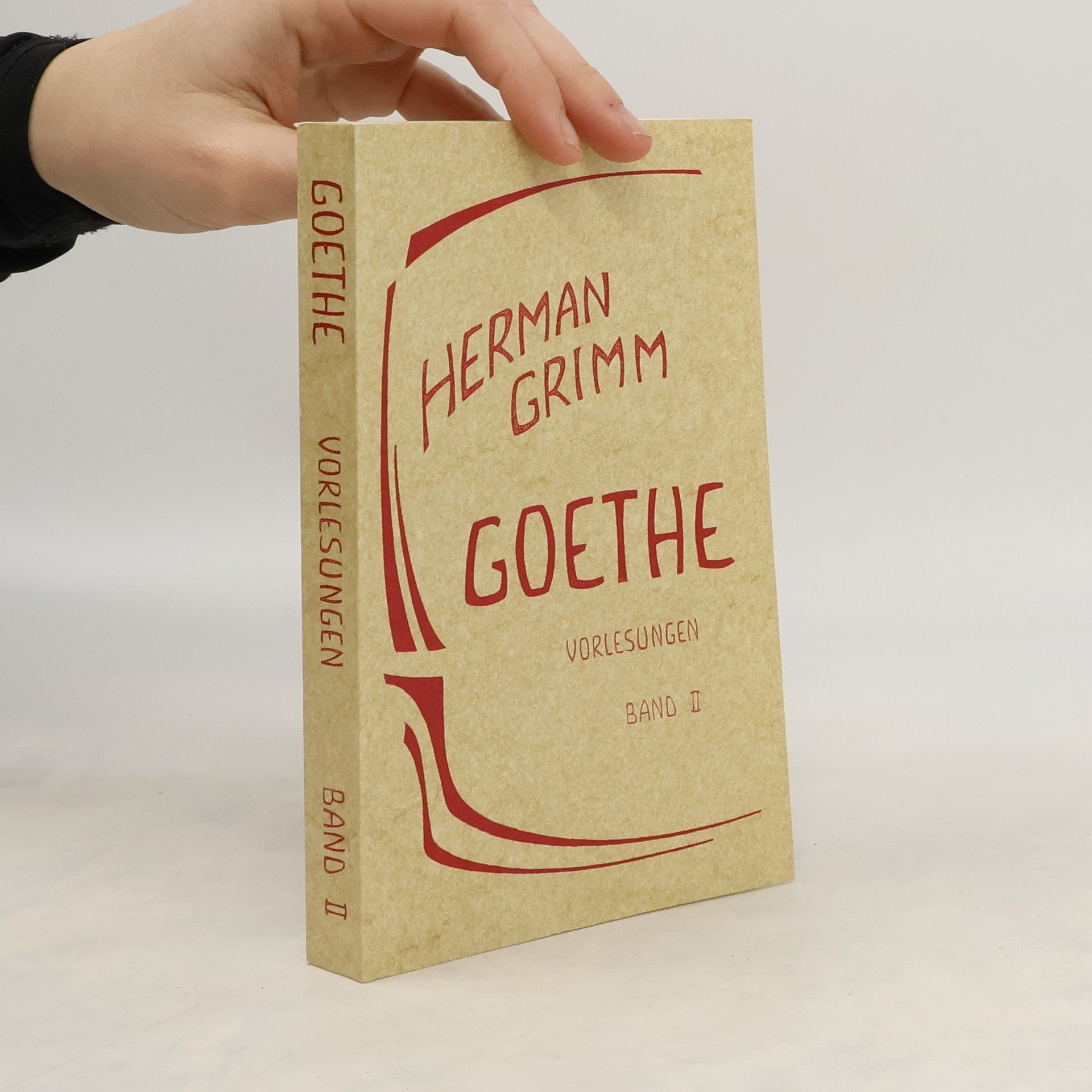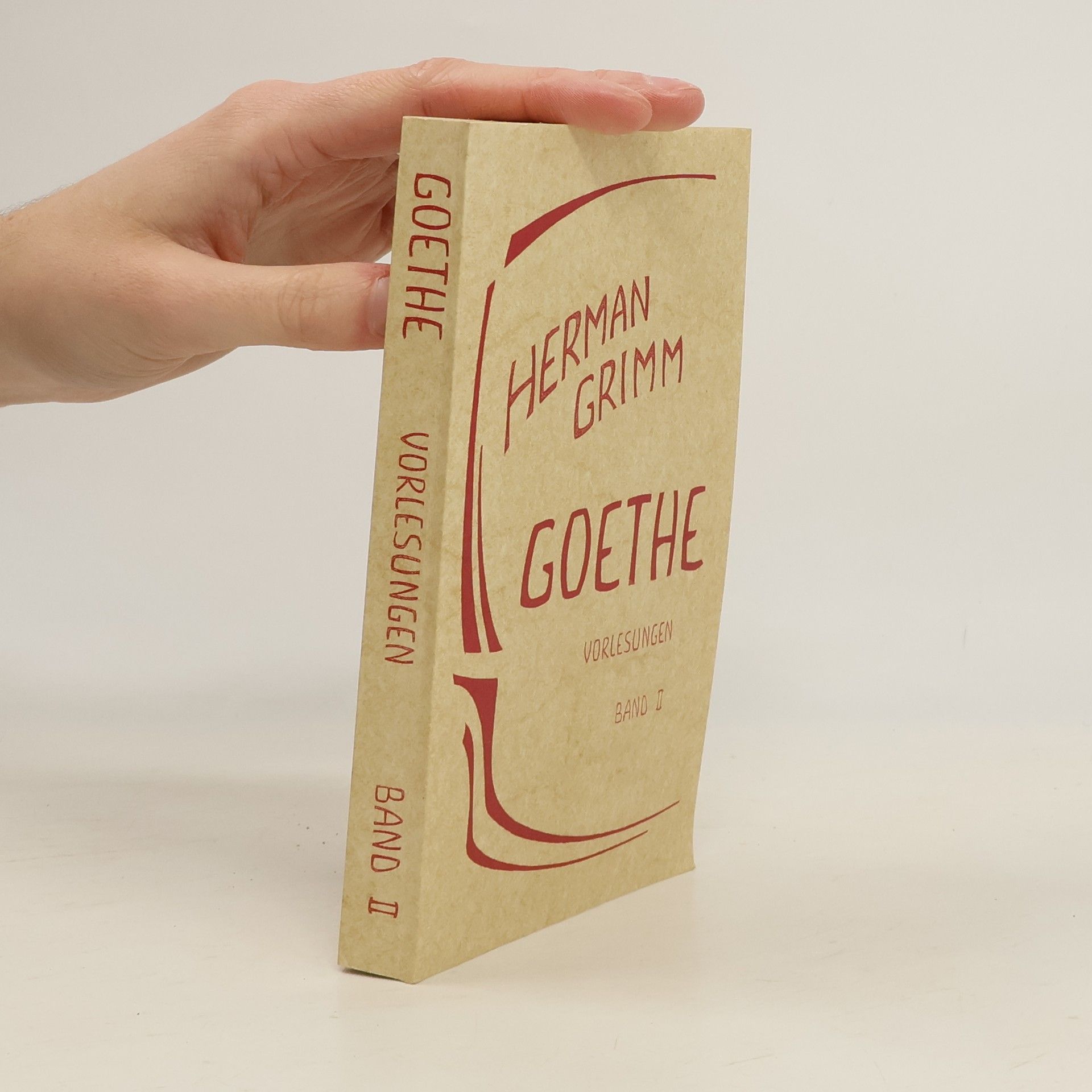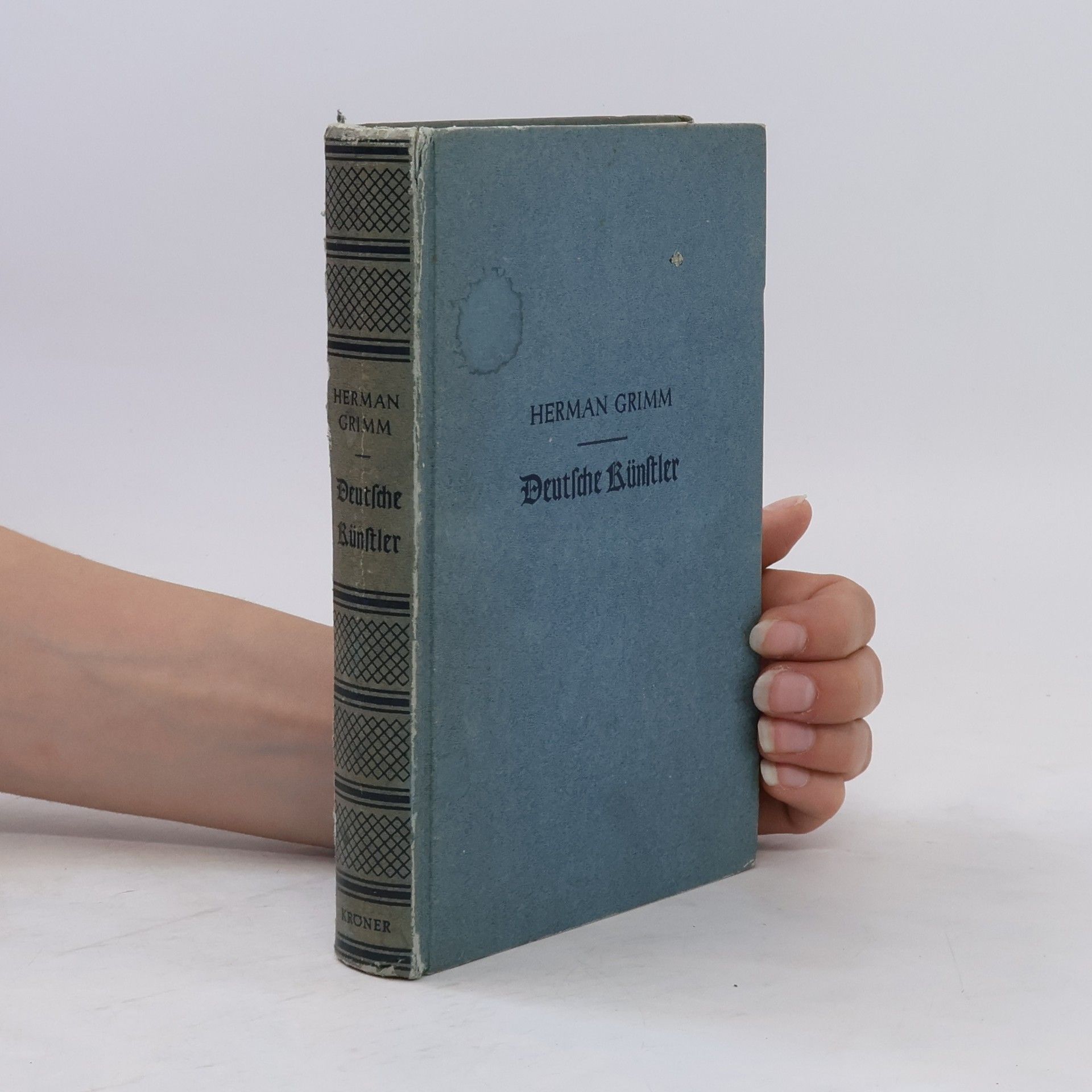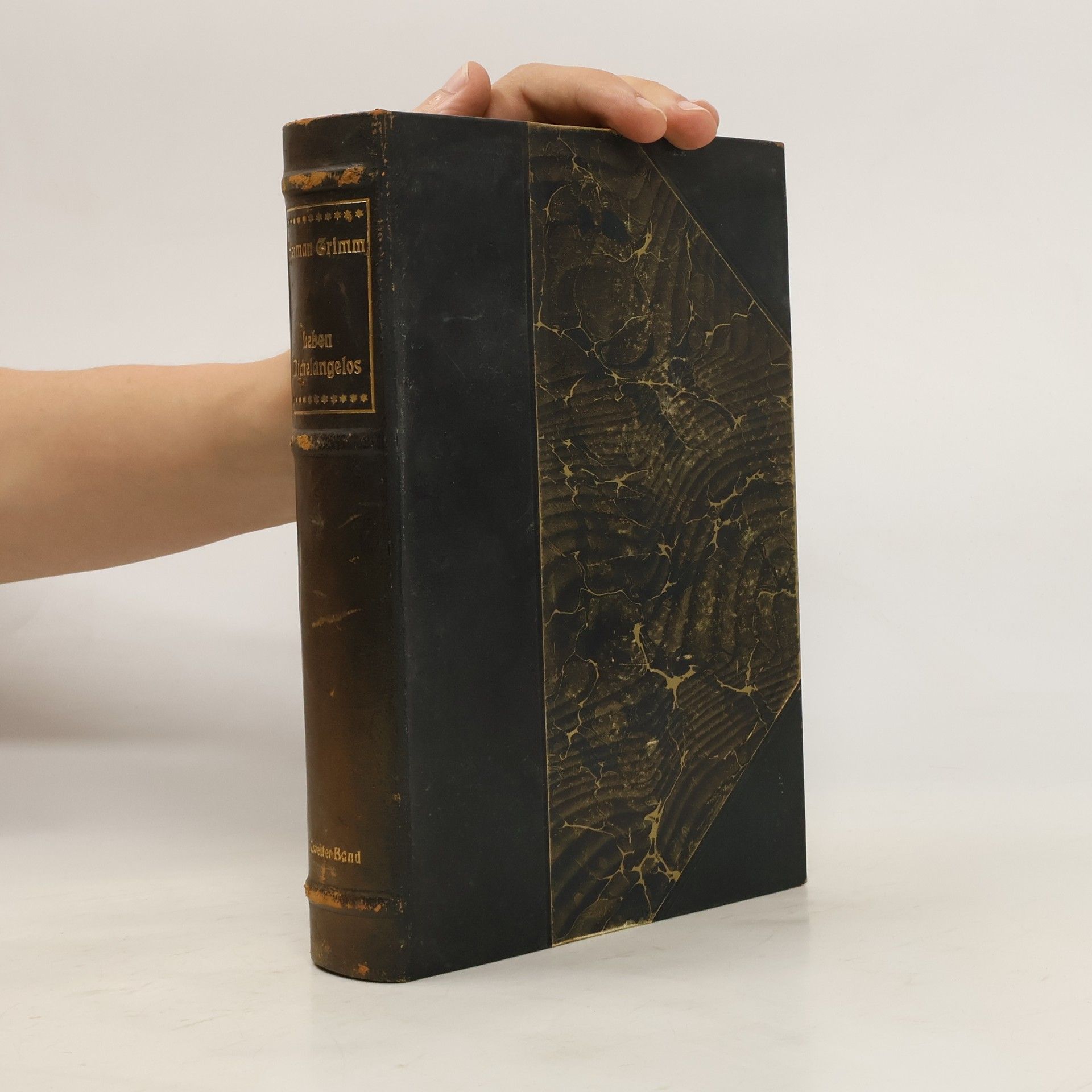Leben & Werk Michelangelos
- 923 pages
- 33 hours of reading
Hermann Grimm, Sohn des berühmten Germanisten und Märchenerzählers Wilhelm Grimm, hat mit dieser Biographie Michelangelos nicht nur dessen Leben und Werk gewürdigt, er hat ein breit angelegtes zeitgeschichtlisches Werk geschrieben, eine Kulturgeschichte der Renaissance, in der Zeitgenossen Michelangelos Päpste, Könige, Bildhauer, Maler und Baumeister lebendig werden. Die Ausgabe enthält außerdem 300 Abbildungen, Bibliographie, Werk- und Bildverzeichnis.

